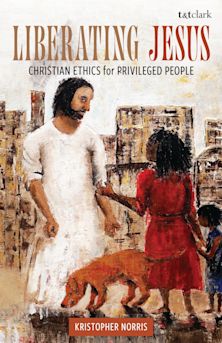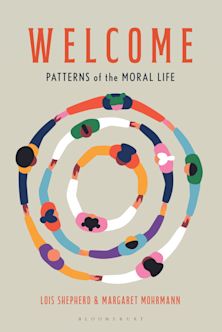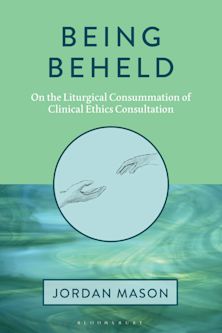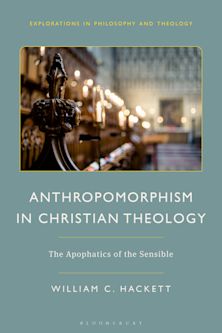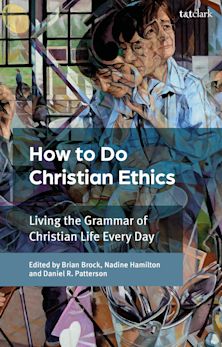- Home
- ACADEMIC
- Religious Studies
- Religious Ethics
- Redeeming Sin?
Redeeming Sin?
Social Diagnostics amid Ecological Destruction
Redeeming Sin?
Social Diagnostics amid Ecological Destruction
You must sign in to add this item to your wishlist. Please sign in or create an account
Description
Can Christian sin-talk be retrieved within the public sphere? In this contribution to ecotheology, Ernst M. Conradie argues that, amid ecological destruction, discourse on sin can contribute to a multidisciplinary depth diagnosis of what has gone wrong in the world. He confronts some major obstacles related to the plausibility of sin-talk in conversation with evolutionary biology, the cognitive sciences, and animal ethology. He defends an Augustinian insistence that social evil, rather than natural evil, is our primary predicament. If the root cause of social evil is sin, then a Christian confession of sin may yet yield good news for the whole earth.
Table of Contents
1. Penultimate Perspectives on the Roots of Environmental Destruction in Africa
2. Where Have Things Gone Awry in Evolutionary History?
3. How is the Story of What Went Wrong in the World to be Told?
4. Obstacles Thwarting a Retrieval of a Christian Notion of Sin
5. Posse Non Peccare?
Conclusion: Engaging in Social Diagnostics
Product details
| Published | Oct 11 2017 |
|---|---|
| Format | Ebook (Epub & Mobi) |
| Edition | 1st |
| Extent | 290 |
| ISBN | 9781498542463 |
| Imprint | Lexington Books |
| Series | Religious Ethics and Environmental Challenges |
| Publisher | Bloomsbury Publishing |
About the contributors
Reviews
-
On the back cover of the book well-known theologians Sallie McFague, Mark Douglas, Gijsbert van den Brink and Denis Edwards comment on the scholarship represented in Redeeming Sin and the contribution that the book makes to the field. For Van den Brink and Edwards, the scholarship is perceptive and compelling, written with intellectual rigour and radical honesty and for McFague and Douglas its contribution is powerful, wide raging and pervasive with profound insights. I agree with all of these scholars and would suggest, in addition, that RedeemingSin is relevant and contextual to scholarship in Africa.
Journal of Theology for Southern Africa
-
Ernst Conradie offers us a book filled with searching questions and profound insights into the nature of human sin in the context of environmental destruction and evolutionary science. With his usual intellectual rigour and radical honesty, he seeks to show how talk of sin can enable a response to the fundamental question: ‘What has gone wrong with the world?’
Denis Edwards, Australian Catholic University
-
Two decades into the twenty-first century, diagnosing the causes of ecological catastrophes is imperative. Tracing the way Christian understandings of sin have shaped such catastrophes is useful. Attending to the insights of those who have been harmed by such understandings is essential. Reviewing such understandings in light of the best findings of contemporary science is ambitious. And defending an Augustinian conception of sin revised in light of such science to a skeptical public is audacious. Yet in these essays, Ernst Conradie manages to pull all this off through his deeply learned, jaw-droppingly wide-ranging, and profoundly generous scholarship. Social diagnoses are only as good as the diagnostician; in this book, we not only learn of the utility of (some) sin-talk for addressing the crises of the environmental age but observe the types of practices that should guide social diagnosticians everywhere.
Mark Douglas, Columbia Theological Seminary
-
In this probing analysis of what is wrong with the world, Ernst Conradie revitalizes the ‘outworn’ Christian concept of sin by situating it within our evolutionary context and applying it to the problem of ecological destruction. Thus, in a wonderfully perceptive and compelling way he does precisely what contemporary theologians should do: retrieving resources from their tradition and putting them to good use in the public sphere.
Gijsbert van den Brink, Vrije Universiteit Amsterdam
-
Christianity has two great traditions—the Protestant, known for its prophetic ‘no’ to human involvement in evil and the Catholic, stressing its positive, celebrative side. Ernst Conradie has given us a splendid book in the prophetic tradition, re-imagining the ancient doctrine of sin for a postmodern, climate-change society. It is a powerful, thorough, well-written ‘case’ for sin, one that I admire and find very persuasive.
Sallie McFague

ONLINE RESOURCES
Bloomsbury Collections
This book is available on Bloomsbury Collections where your library has access.














